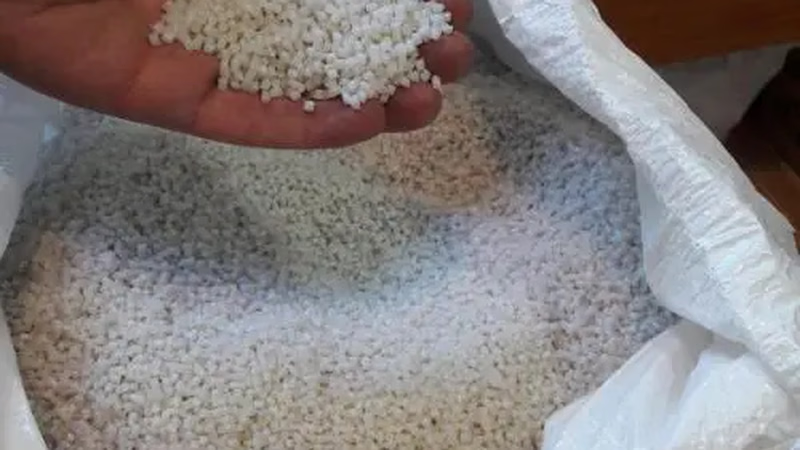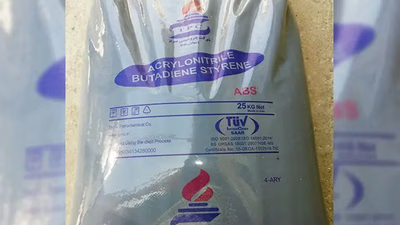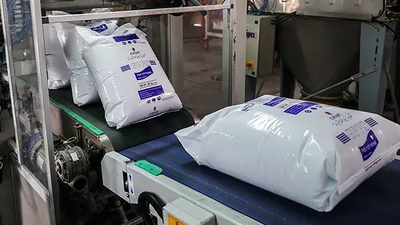
ABS polymer production in Asia: key feedstocks and manufacturers.
Asia is home to abundant reserves of the key feedstock required for ABS production, such as acrylonitrile, butadiene, and styrene. The region has access to significant petroleum and natural gas resources, which serve as the raw materials for the production of these monomers. Proximity to raw material sources reduces transportation costs and ensures a stable supply, making Asia an attractive location for ABS production. Asian countries, particularly South Korea, Taiwan, and Japan, have well-established and advanced petrochemical and polymer manufacturing industries. These countries have made substantial investments in infrastructure, research and development, and production capabilities to support the petrochemical sector. They have developed sophisticated manufacturing processes and technologies for efficient and high-quality ABS production.
LG Chem is one of the largest chemical companies in South Korea and a major producer of ABS. They offer a range of ABS grades with different properties to cater to various industries and applications. Chi Mei Corporation, based in Taiwan, is a leading producer of ABS resin. They produce ABS under the brand name \"CHIMEI\" and offer a diverse portfolio of ABS grades for different applications. Formosa Plastics Corporation is a Taiwanese company with a significant presence in the petrochemical industry. They produce ABS resin, among other plastic products, and supply it to various markets worldwide.
Asia has proximity to major markets, including Asia-Pacific, which is the largest consumer of ABS. Being closer to the market reduces transportation costs and enables faster delivery, giving Asian producers a logistical advantage. Governments in Asian countries have implemented policies and provided incentives to promote the petrochemical industry and attract investments. These initiatives include tax incentives, infrastructure development, research funding, and supportive regulatory frameworks. Such support has encouraged the growth of ABS production in the region.
Tabriz Petrochemical and Ghaed-Basir Petrochemical are among the ABS producers in the Middle East. This polymer is produced in 50 grades, including ordinary grades, flame retardant grades, plating grade and heat resistant grades, most of which are produced in Ghaed Basir Petrochemical. It can be recycled by crushing and heating ABS. To prevent yellowing and thermal degradation of ABS, it is important to adjust the temperature during granulation by the granulator. One of the problems that arises when recycling ABS is contamination by impact polystyrenes (with high impact resistance) which can have very serious effects on recycled materials.
In our country, before the grinding process, gasoline is used to separate ABS from polystyrene. If gasoline dissolves, it is impact polystyrene, and if it does not dissolve, ABS is detected. If the mixture is milled, the separation process is performed using salt water. In other countries, electrostatic and floating foam methods are used to accurately separate the mixture.
Asahi Kasei Corporation, based in Japan, is known for its ABS production. They offer ABS grades with different properties, including high heat resistance, impact resistance, and flame retardancy. Kumho Petrochemical is a South Korean company that produces ABS resin. They provide ABS grades suitable for various industries, including automotive, electronics, and construction.
Asia is experiencing rapid industrialization, urbanization, and economic growth. This has led to increased demand for ABS and other plastics in various industries, including automotive, electronics, appliances, and construction. The presence of large consumer markets in the region, coupled with the expansion of manufacturing sectors, has created a favorable environment for ABS production. Asian petrochemical companies have been able to achieve cost competitiveness in ABS production. Factors such as lower labor costs, economies of scale, efficient supply chain management, and access to raw materials contribute to cost advantages. This allows Asian ABS producers to offer competitive pricing in the global market.
-

ABS polymer is widely utilized in the automotive sector for injection-molded components, including interior and exterior parts like dashboard panels and bumper covers. Its applications extend to electronic enclosures, consumer goods, and various household items due to its moldability and aesthetic appeal. The affordability of ABS makes it a preferred choice in the plastic injection industry. Additionally, ABS"s structural diversity allows for various properties, enabling manufacturers to create products with different shapes and uses. The polymer is also employed in appliance components, toys, recreational products, and certain medical devices due to its durability, impact resistance, and chemical resistance. Innovations such as MBS alloy have emerged to enhance ABS"s properties, offering alternatives with high transparency but lower tensile strength. Overall, ABS remains a versatile material in plastic injection molding across multiple industries.
-

Asia"s abundant reserves of acrylonitrile, butadiene, and styrene make it a prime location for ABS polymer production. Countries like South Korea, Taiwan, and Japan have advanced petrochemical industries supported by significant investments in infrastructure and technology. Major producers such as LG Chem, Chi Mei Corporation, and Formosa Plastics Corporation leverage their proximity to raw materials and major markets to reduce costs and enhance delivery efficiency. The region"s favorable policies promote growth in the petrochemical sector, further boosting ABS production capabilities. In the Middle East, companies like Tabriz Petrochemical and Ghaed-Basir Petrochemical also contribute to ABS manufacturing. The demand for ABS is rising due to rapid industrialization across Asia, with applications spanning automotive, electronics, and construction sectors. Competitive pricing is achieved through lower labor costs and efficient supply chain management. However, challenges such as recycling contamination need addressing to maintain quality in recycled ABS products.
-

ABS plastic is valued for its mechanical properties, including toughness, impact resistance, and rigidity, making it ideal for various industrial applications. Its thermal stability allows it to maintain performance under temperature fluctuations, while its chemical resistance enables use in environments with exposure to acids and oils. ABS is widely utilized in the automotive sector for components like dashboards and bumpers due to its durability and moldability. In consumer electronics, it serves as a material for housings and connectors. Additionally, ABS is popular in 3D printing for creating prototypes and functional parts. Despite some disadvantages such as flame sensitivity and opacity, these can be mitigated through alloying with other materials. The ease of processing ABS through methods like injection molding enhances its appeal across industries, including household appliances and construction. Its versatility allows customization to meet specific application needs.
-

Acrylonitrile Butadiene Styrene (ABS) is a widely used thermoplastic polymer known for its toughness, impact resistance, and dimensional stability. Composed of acrylonitrile, butadiene, and styrene, ABS combines the strengths of these monomers to create a versatile material suitable for various industries. Its properties include chemical resistance, heat resistance, and hardness from acrylonitrile; impact resistance from butadiene; and rigidity from styrene. ABS is prevalent in consumer electronics like keyboards and phone cases, as well as in automotive parts, household appliances, and construction materials. The polymer"s machinability allows for precise component production through conventional methods such as cutting and drilling. ABS is also cost-effective compared to other engineering thermoplastics and offers good electrical insulation properties. However, it may not be suitable for all applications due to its limited chemical resistance and potential degradation under prolonged sunlight or high temperatures. Therefore, careful consideration of application requirements is essential when selecting ABS. "
-

ABS polymer offers significant advantages for plastic injection molding, including excellent impact resistance, ease of processing, and good flow properties. Its versatility allows for modifications to enhance specific characteristics, making it suitable for various applications. ABS provides a smooth surface finish, reducing the need for additional finishing processes. It also exhibits good chemical resistance, making it ideal for environments where contact with different substances is common. However, ABS has notable disadvantages such as a low melting point, which limits its use in high-temperature applications like medical implants. Its resistance to corrosion and UV rays is also low, leading to potential degradation over time when exposed to sunlight or harsh conditions. Additionally, ABS can warp during cooling and has moderate shrinkage that requires careful design considerations during production. Despite these drawbacks, the material"s ductility and affordability contribute to its popularity in producing everyday plastic products. "





